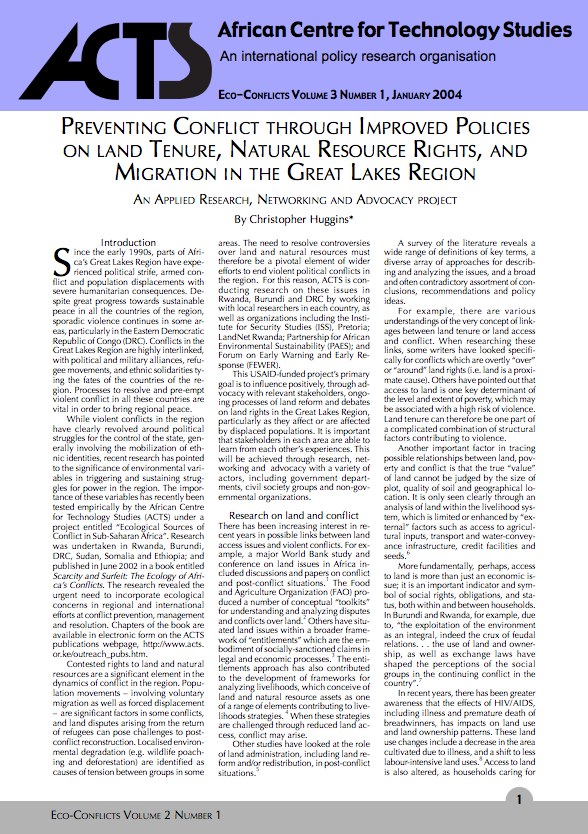Leave None to Claim the Land: A Malthusian Catastrophe in Rwanda
More than 200 years after its Örst publication, the Malthusian thesis is still much debated, albeit in a modiÖed form. Rather than predicting a global catastrophe, most neo-Malthusians stress the local character of the relationship between population pressure, natural resource scarcity, and conáict as well as its dependency on the socio-political and economic context. This softened version of Malthusíthesis has received little empirical support in cross-country studies.










